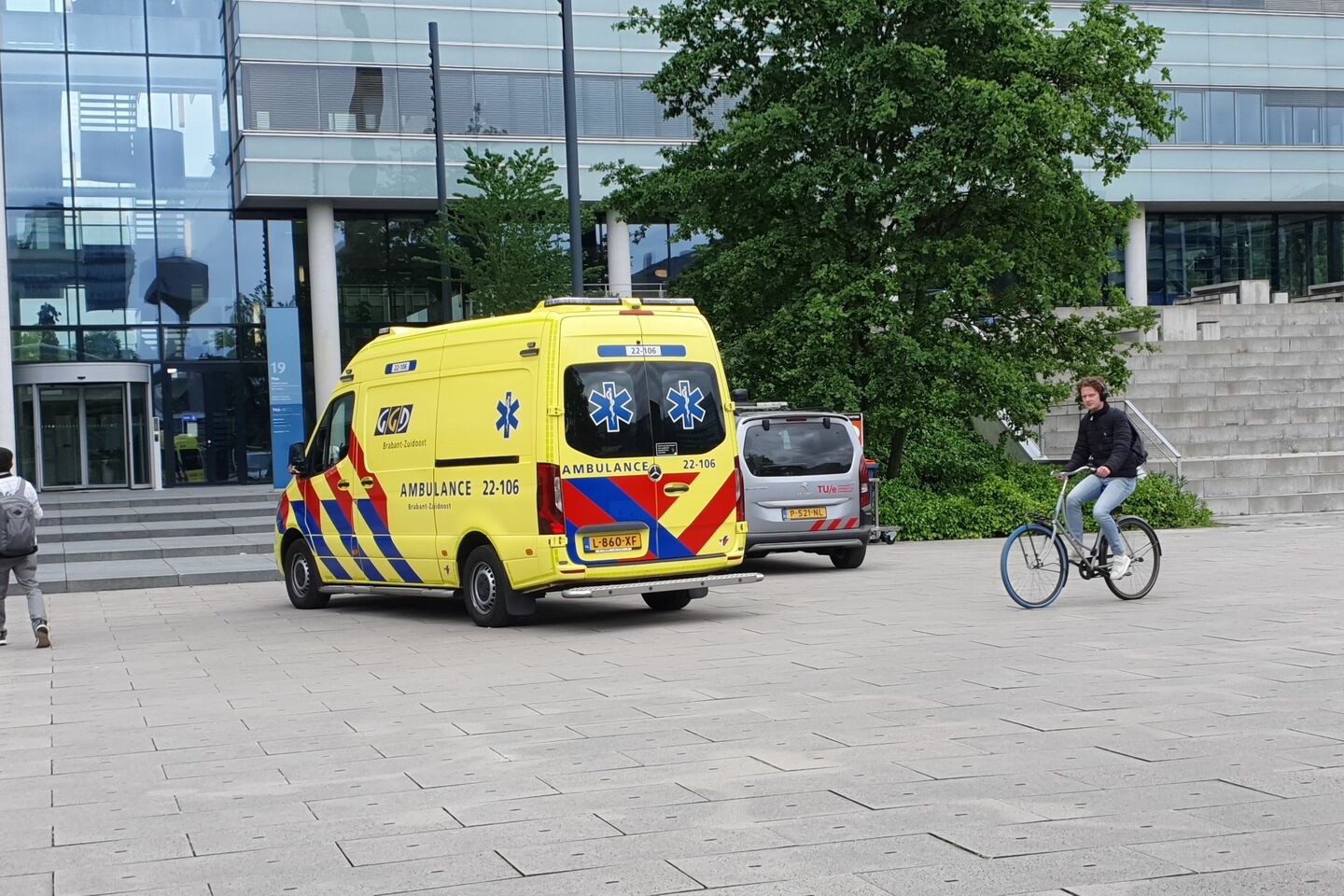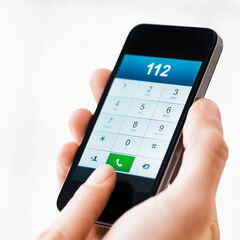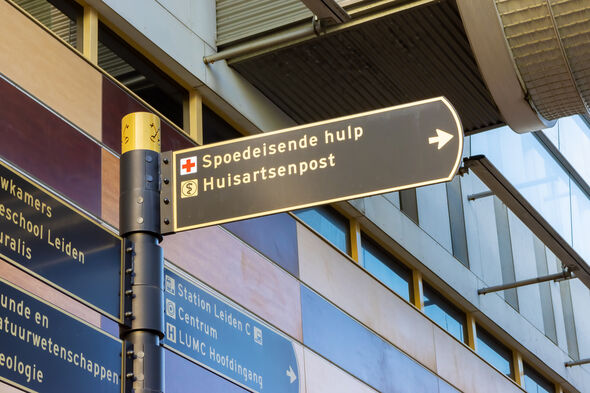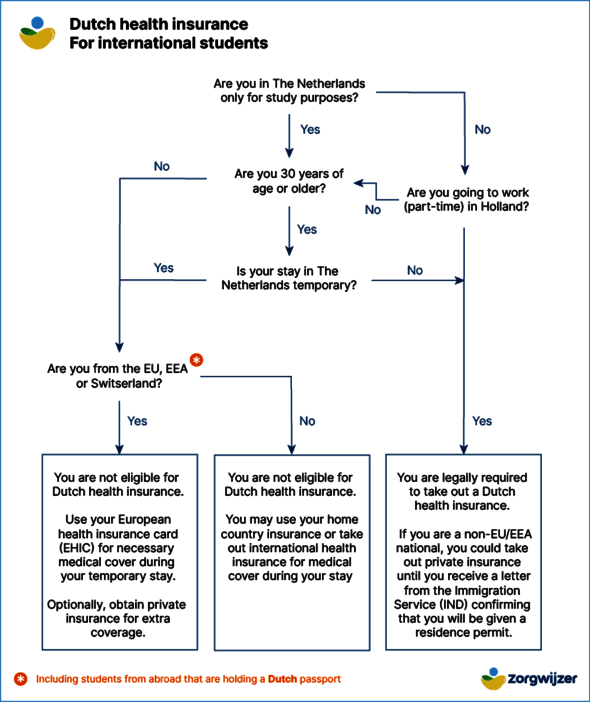
Do internationals know the alternative to 112?
A story by and for internationals who are struggling with the Dutch healthcare system
Recently, Cursor published an article by the Hoger Onderwijs Persbureau (press agency for higher education media) addressing international students calling 112 too easily. We got quite some (upset) responses of mostly internationals questioning this. Also, in the original article there was a lack of information of whom they should call in case of health issues after 5 PM. Cursor decided to dive into the topic a bit further and elaborate, because yes, there is a simple alternative to 112 in most cases: 'de huisartsenpost'.
Is there enough info about the Dutch healthcare system for internationals? And who is or should be responsible to give it to them? So far, from experience we can tell that many internationals are not aware of the Dutch healthcare rules here, nor is there one institution obliged to tell them. To make things clearer, we decided to give you some information on what to do regarding health care if you’re new to the Netherlands. Also, we interviewed a few (former) students who either responded to the first article and/or who had a personal experience needing medical assistance in - what at least felt like - an emergency.
Judging symptoms
Alumnus Computer Science Martin Mirchev: “I’m originally from Bulgaria and 112 is also our emergency number. I’m not fully sure what are the alternatives in the Netherlands though”, he admits. “I remember when I also applied in Twente, I got a document explaining something about this (‘huisartsenpost’ he means, ed.), but not at TU/e.” For himself he knew the route to the GP. But when a roommate suddenly got very sick he was also unsure whether to dial 112. “You don’t want to call for no reason, but it can sometimes be heard to judge the symptoms whether they qualify.”
How the Dutch healthcare system works
Mirchev soon got a Dutch healthcare insurance. “Before that I used the European Healthcare card as my insurance in Bulgaria also covered me here (something that doesn’t apply to every European citizen and sure not for non-EEA citizens, check your own situation, ed.). I also bought the AON insurance package which I thought I had to, but it turned only obligatory for non-EEA students (if you have questions about this, check with ESA, ed.). But I soon got a job as a teaching assistant and therefore applied for a regular Dutch healthcare insurance (an obligation if you work in the Netherlands, ed.).”
- When you move to the Netherlands, make sure to register with a GP a.s.a.p. This person will help you with complaints that are not emergencies and that might need a referral, for example to a hospital to get a scan.
- Specialists in the Netherlands are ‘tweedelijns zorg’ and need a referral. You cannot just decide you want a gynecological check for example. The GP decides on that.
- If you need medical assistance after business hours (so after 5 PM or on weekends), you need to call the ‘huisartsenpost’ in your area. Google for ‘huisartsenpost’ and your city. It will show a number to call. Those GPs are on duty any time after business hours and are located somewhere in your city. In Eindhoven they are in the Catharina Hospital. That might make it confusing, but if you call them first they will explain on which side. Also; you always need to call first to get an appointment with the GPs from the huisartsenpost. Don’t just drive there.
- 112 is the main number for any emergency. Once they pick up, you tell them what service you need: police, ambulance or fire department. Then you tell them your emergency.
- What exactly is the difference between 'huisartsenpost' and 'spoedeisende hulp' (ER)? 'De huisartsenpost' is there for urgent health complaints, for which you would otherwise call your GP. 'Spoedeisende hulp' (ER) is for severe/life-threatening situations requiring the assistance of a medical specialist. When in doubt, it's best to call 'de huisartsenpost' first.
- Make sure you have health care insurance that covers medical costs in the Netherlands. Costs can get very high here if you’re getting checks or have to stay in the hospital. If you work here you are obliged to be insured from day 1 and have 4 months to arrange it retroactively. Some exceptions apply for foreign employers. If you’re a student, there are many more different situations depending on where you come from and if you work besides your studies. This website gives a good overview of the rules, not only regarding health insurance but also other insurances you are obliged or advised to take.
- For international students there is a nice flow chart that helps you decide if whether you need a Dutch healthcare insurance and/or are eligible:
Alone in a new place
A former international TU/e PDEng trainee who wants to remain anonymous in speaking about an incident where she went to the ER even though it wasn’t necessary. We call her Lila Tari. “When I first read the article about international students calling 112 too often, I immediately wondered: ‘is there data behind this claim? Has this been properly researched?’ Because I’m afraid that such claims can help stigmatize internationals.” In the article it’s mentioned many control rooms were contacted and reported on their experiences, but there hasn’t been an in depth check to map out all callers for a specific amount of time.
Tari replies: “I understand it’s important not to just call 112, but it might also be good to realize that international students generally come here alone: no family to help, to come over to check if they feel bad.” She has experienced a situation herself abroad when she didn’t know what else to do but to go to ER and ask for help. “I was 24, just started living in Italy and had to learn still how their system worked. At some point I got chest pain that scared me. I wasn’t sure what was happening, there was nobody there for me to help me out. Medical help was the only thing I could think of. If you have health anxiety which was true in her case and can get worse when you have symptoms, bringing you into a cycle.” When she entered the ER in Italy they categorized my situation as a non-life threatening one, so she had to wait for a couple of hours. “When they checked me after a few hours, it turned out I had studied so hard and long, that the muscles around my chest totally got painful of sitting in the same position. If a doctor can tell you it is not a life threatening situation, that also brings some relief that you otherwise didn’t get and the worrying would go on.”
Dealing with a Dutch GP
Tari feels it is already harder in general for internationals to get an appointment with the GP than for Dutch people. “It feels like they take us less seriously, and claims like these of internationals calling 112 too fast might also stereotype us so health professionals take us less seriously when we want to make an appointment or call with symptoms. In general I like my GP”, Tari says. “But it’s hard to get an appointment with her as the assistant is really a tough gatekeeper.”
Martin Mirchev had some more positive experiences with Dutch healthcare. The alumnus Computer Science came to the Netherlands in 2019 and has used quite some healthcare since. Mirchev has astma which makes him qualify for the yearly flu shot the Netherlands has for risk groups. “I immediately signed up for a GP when I arrived in Eindhoven. I had some appointments with my GP and they were good. I liked the free vaccines for risk groups like me. I got those twice, however in the third year I didn’t get the invite but I called and still managed to get it.”
“I also had a small surgery on my foot which was taken care of fast and proper, contrary to many experiences I heard around me” Mirchev says. “Maybe it made a difference that I had something visible. But people are friendly and their English is in general good.” He does see differences in the system compared to the one in his home country. “We have a medical pedicure you can directly go to that would also take care of specific things like this. Here you have to go via a GP for everything.”
Stroomz de Ring International
Eindhoven has a special international doctor’s practice: Stroomz de Ring International, former SGE. An initiative with GPs who speak English well (although most do a fair job in the Netherlands) but also focus on what internationals expect and understanding to bridge the gap between our system and the other systems around the world. But now, this practice is full – as are many others in big cities in the Netherlands. Stroomz doesn’t take any patients at the moment, unless you’re a family member of a current patient. Of course internationals can also apply at any other doctor’s practice. It’s not obligatory but strongly advised to register with a GP near you when living in the Netherlands. If many are full in the neighborhood you live in, ask your Dutch health care insurance for assistance. Or if you don’t have one, check with a GP near you to give you a tip on practices that still take patients.




Discussion